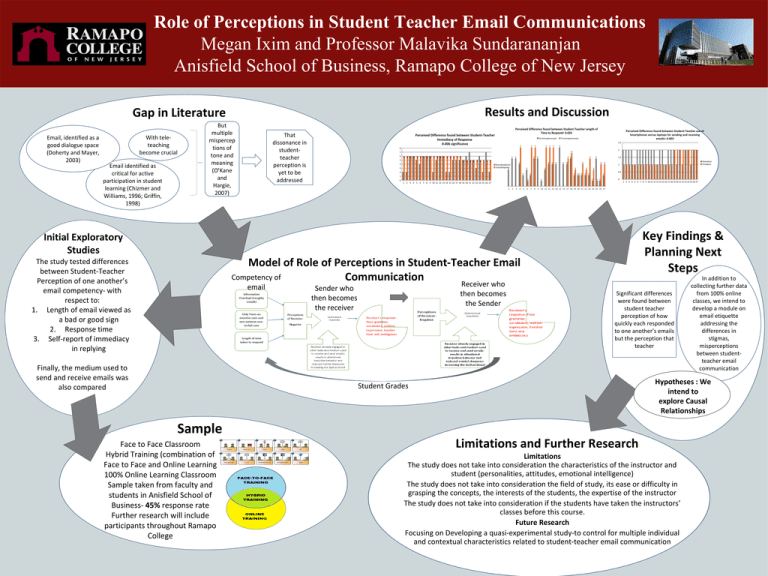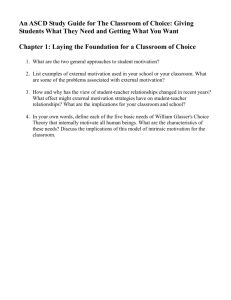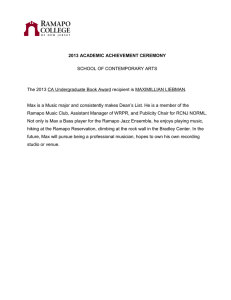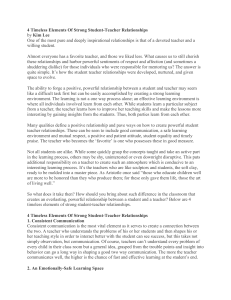Role of Perceptions in Student Teacher Email Communications
advertisement

Role of Perceptions in Student Teacher Email Communications Megan Ixim and Professor Malavika Sundarananjan Anisfield School of Business, Ramapo College of New Jersey Results and Discussion Gap in Literature Email, identified as a good dialogue space (Doherty and Mayer, 2003) With teleteaching become crucial Email identified as critical for active participation in student learning (Chizmer and Williams, 1996; Griffin, 1998) But multiple mispercep tions of tone and meaning (O’Kane and Hargie, 2007) That dissonance in studentteacher perception is yet to be addressed Key Findings & Planning Next Steps Initial Exploratory Studies Model of Role of Perceptions in Student-Teacher Email Competency of Communication The study tested differences between Student-Teacher Perception of one another’s email competency- with respect to: 1. Length of email viewed as a bad or good sign 2. Response time 3. Self-report of immediacy in replying email Finally, the medium used to send and receive emails was also compared Receiver who then becomes the Sender Sender who then becomes the receiver Significant differences were found between student teacher perception of how quickly each responded to one another’s emails but the perception that teacher Hypotheses : We intend to explore Causal Relationships Student Grades Sample Face to Face Classroom Hybrid Training (combination of Face to Face and Online Learning 100% Online Learning Classroom Sample taken from faculty and students in Anisfield School of Business- 45% response rate Further research will include participants throughout Ramapo College In addition to collecting further data from 100% online classes, we intend to develop a module on email etiquette addressing the differences in stigmas, misperceptions between studentteacher email communication Limitations and Further Research Limitations The study does not take into consideration the characteristics of the instructor and student (personalities, attitudes, emotional intelligence) The study does not take into consideration the field of study, its ease or difficulty in grasping the concepts, the interests of the students, the expertise of the instructor The study does not take into consideration if the students have taken the instructors’ classes before this course. Future Research Focusing on Developing a quasi-experimental study-to control for multiple individual and contextual characteristics related to student-teacher email communication





